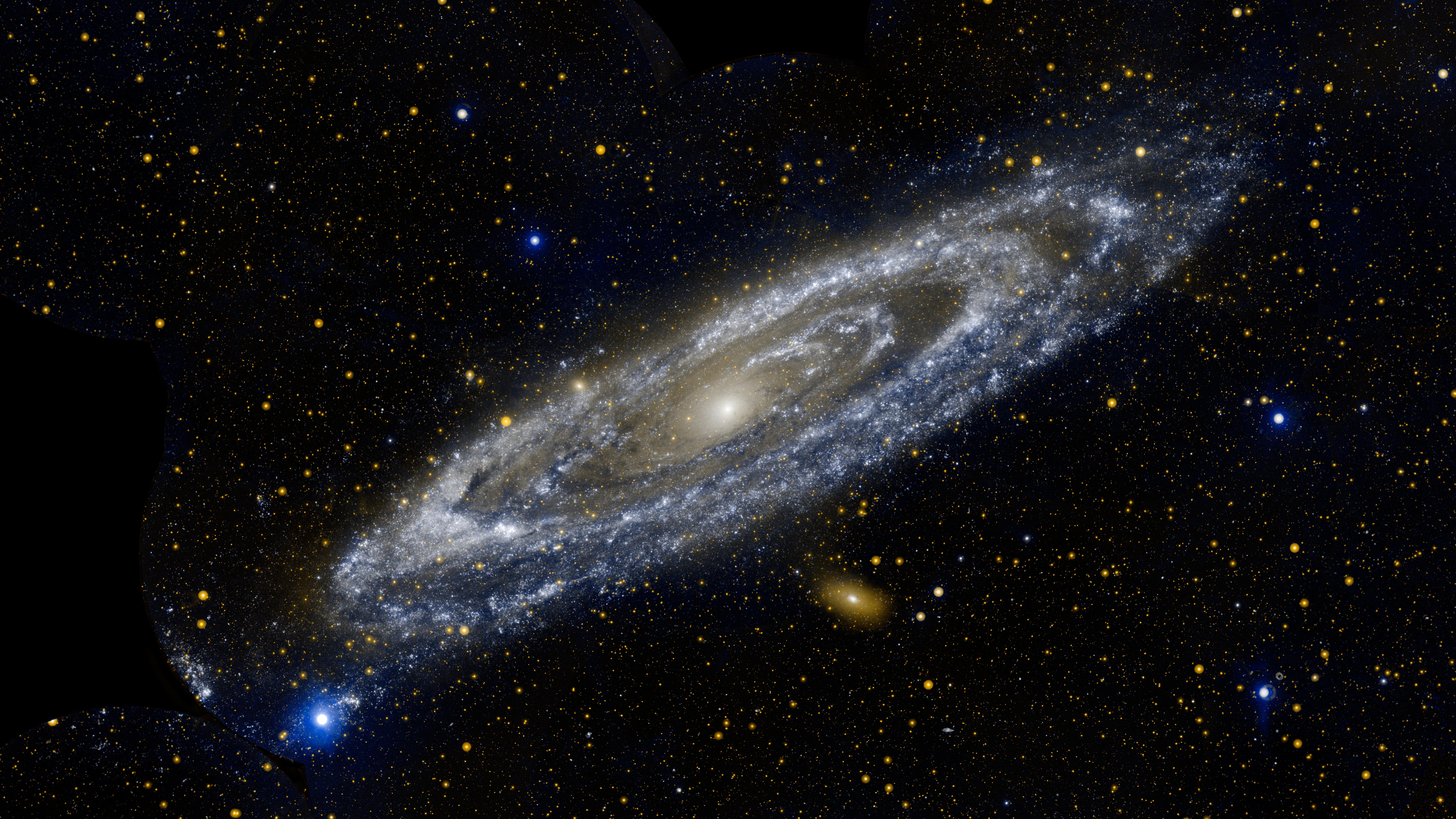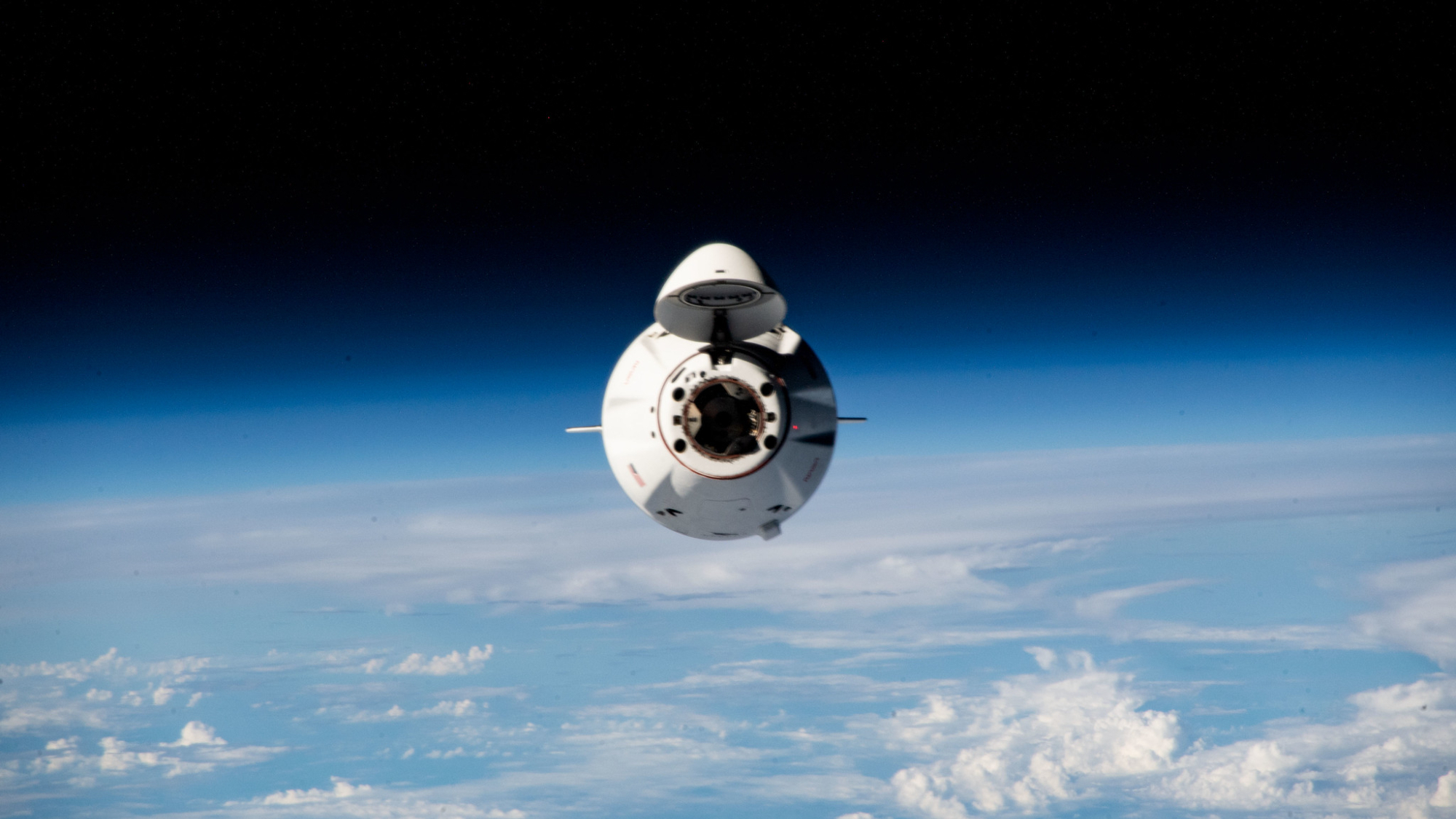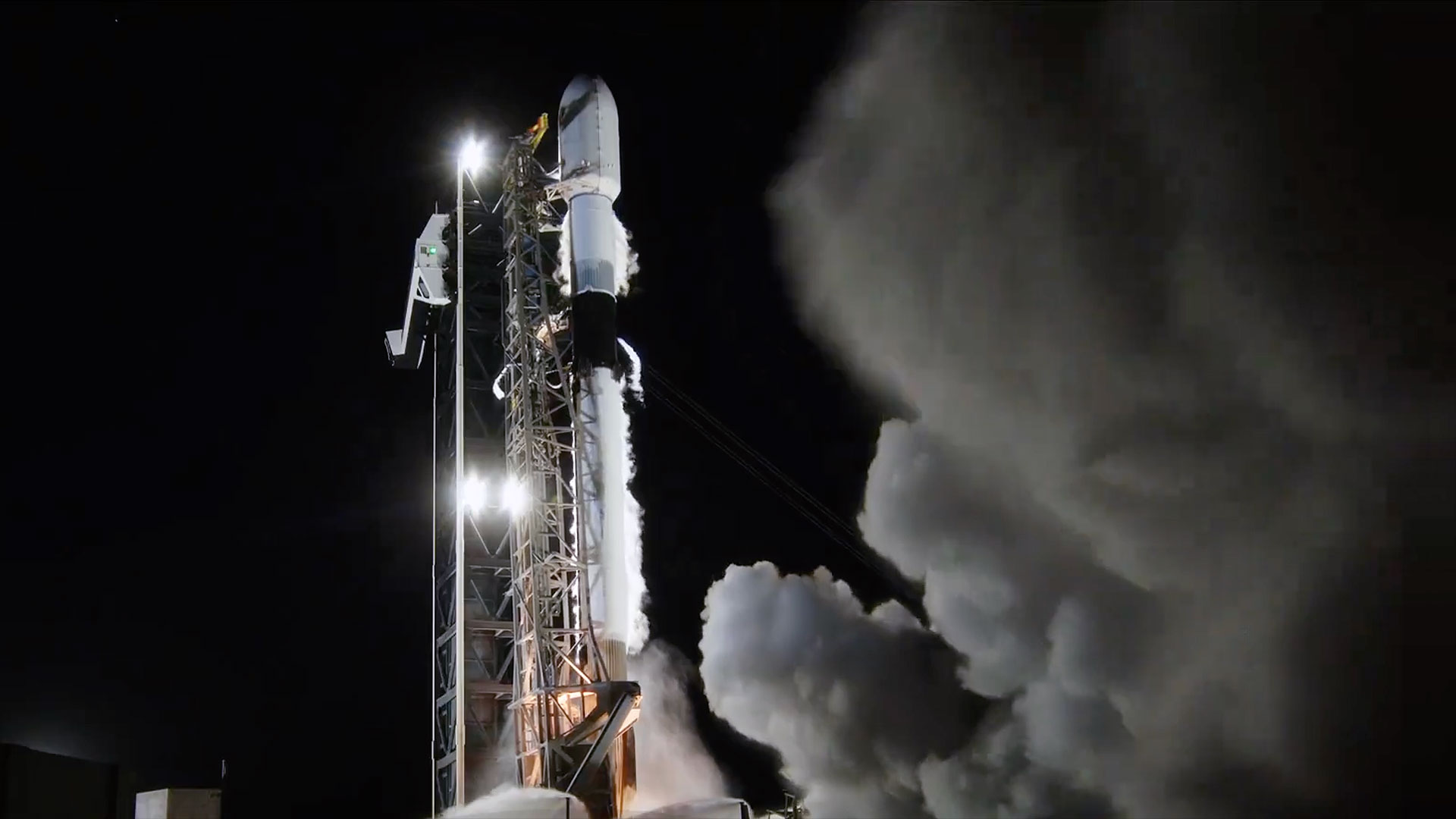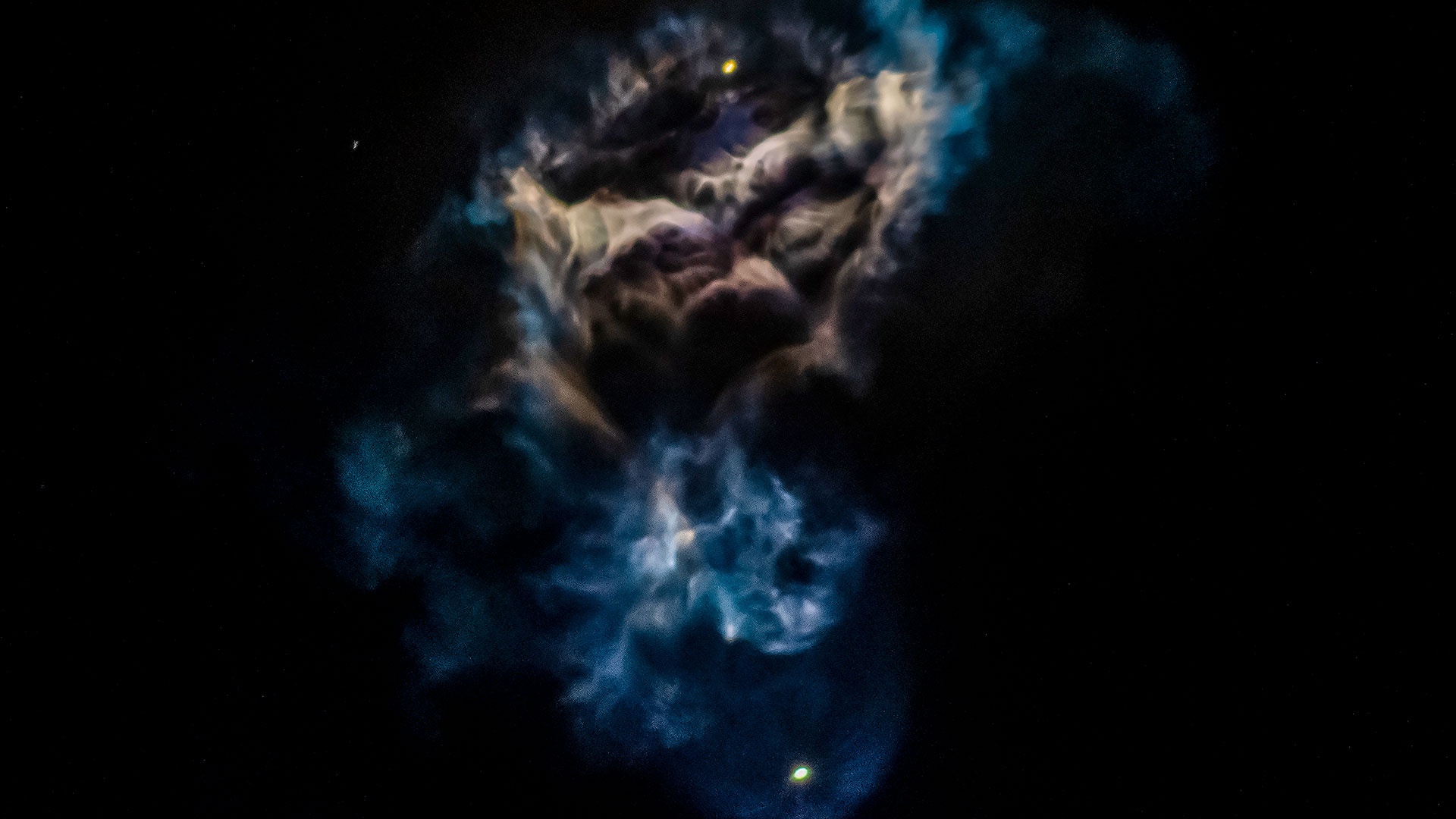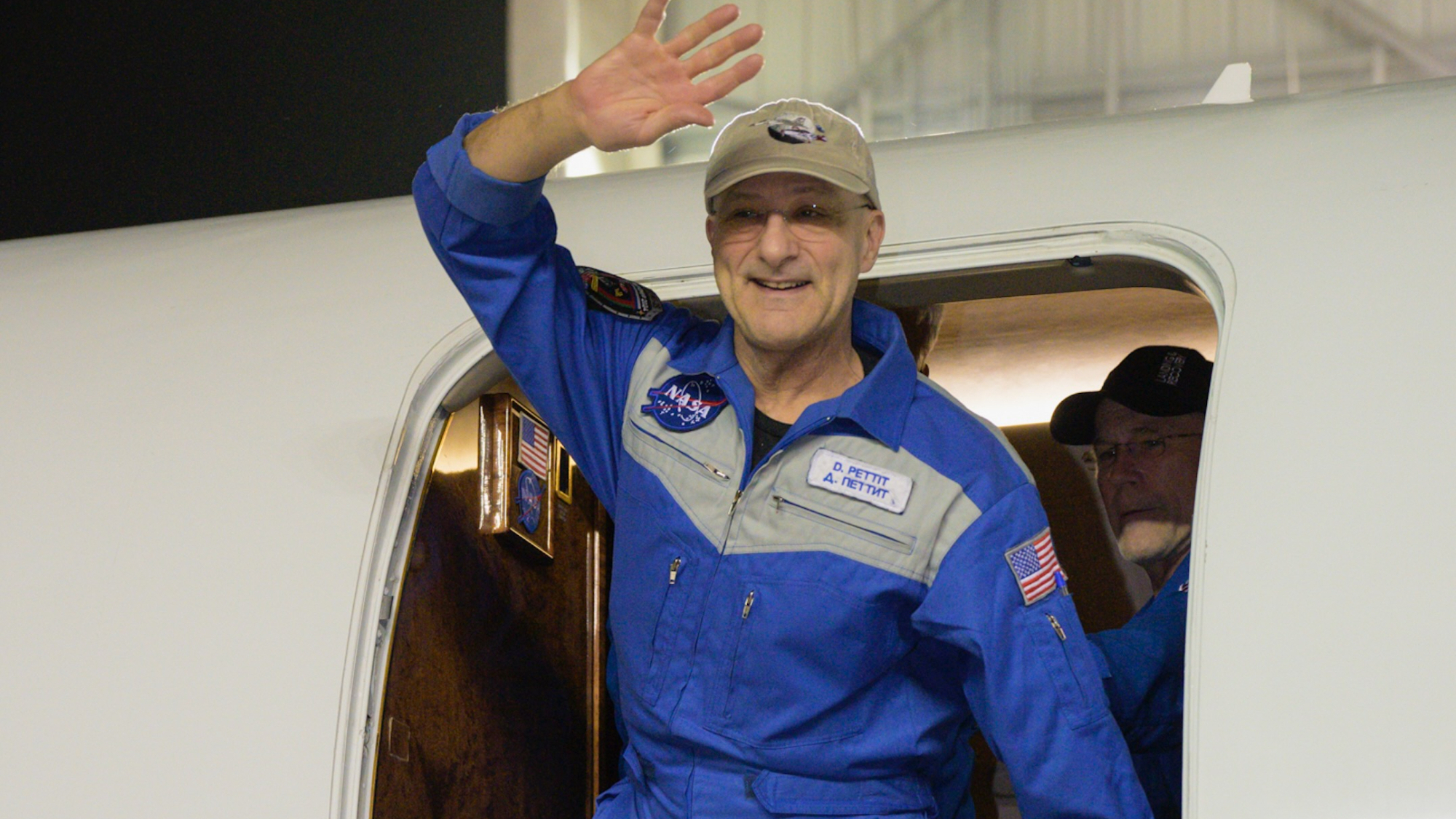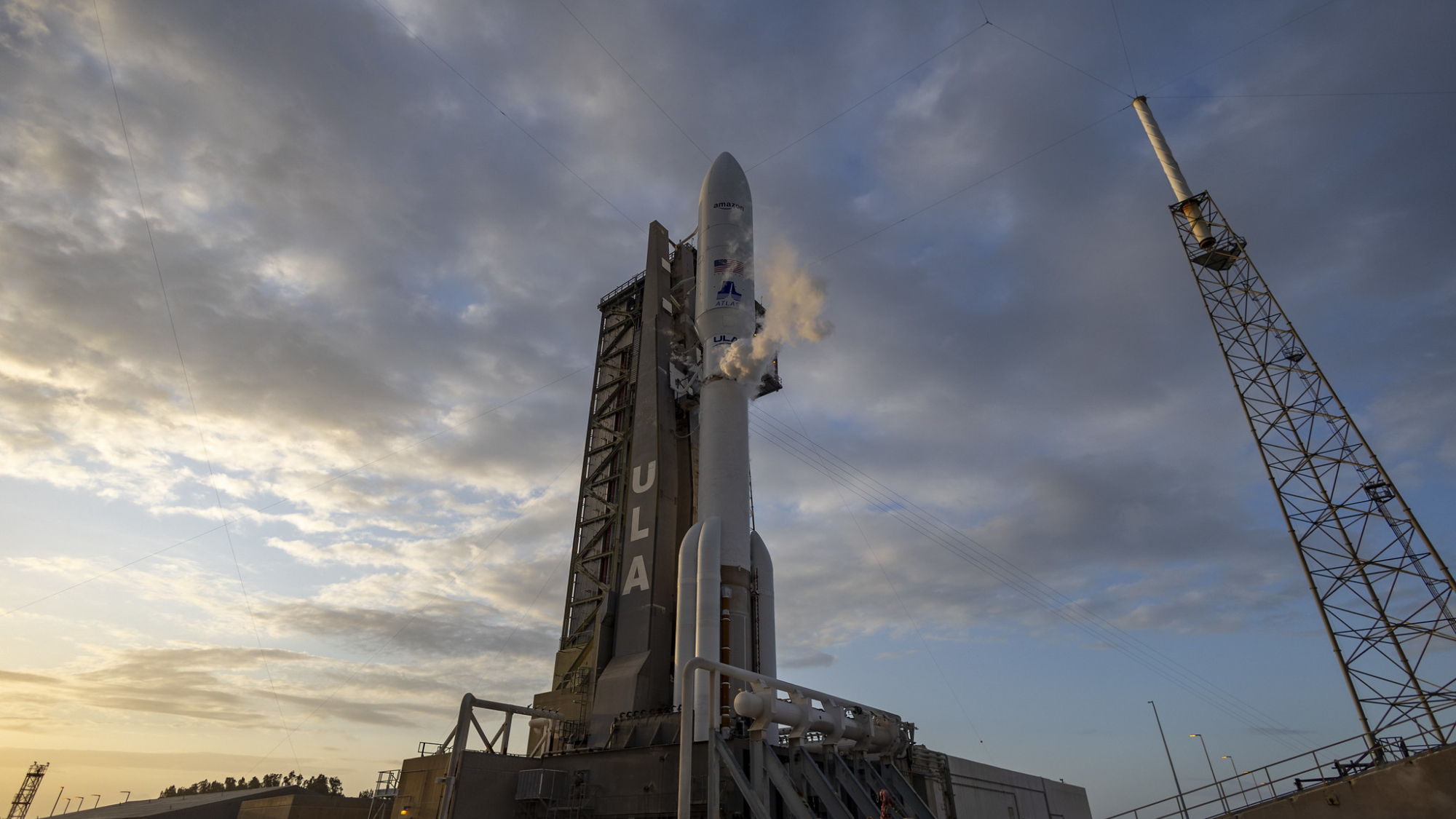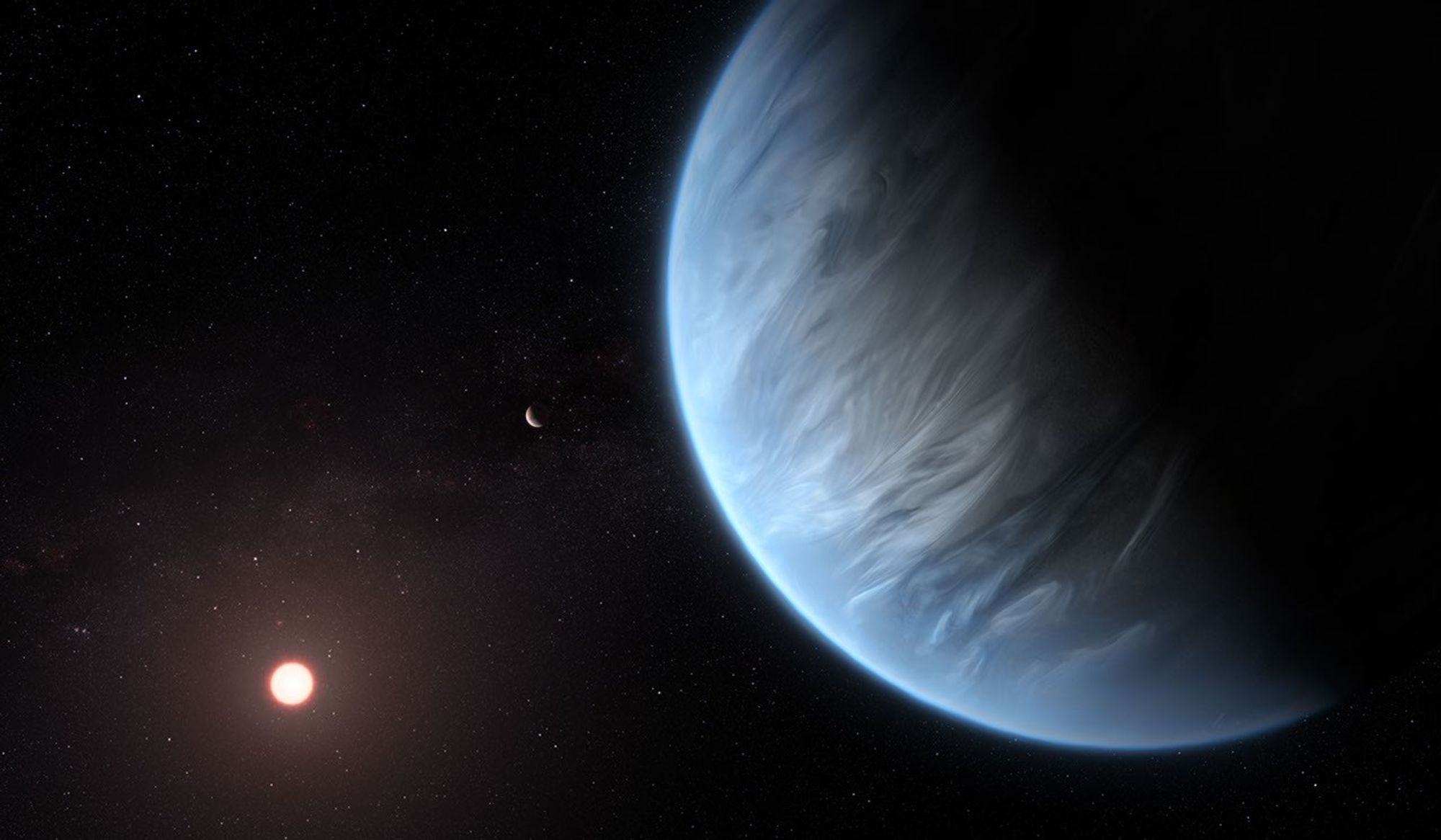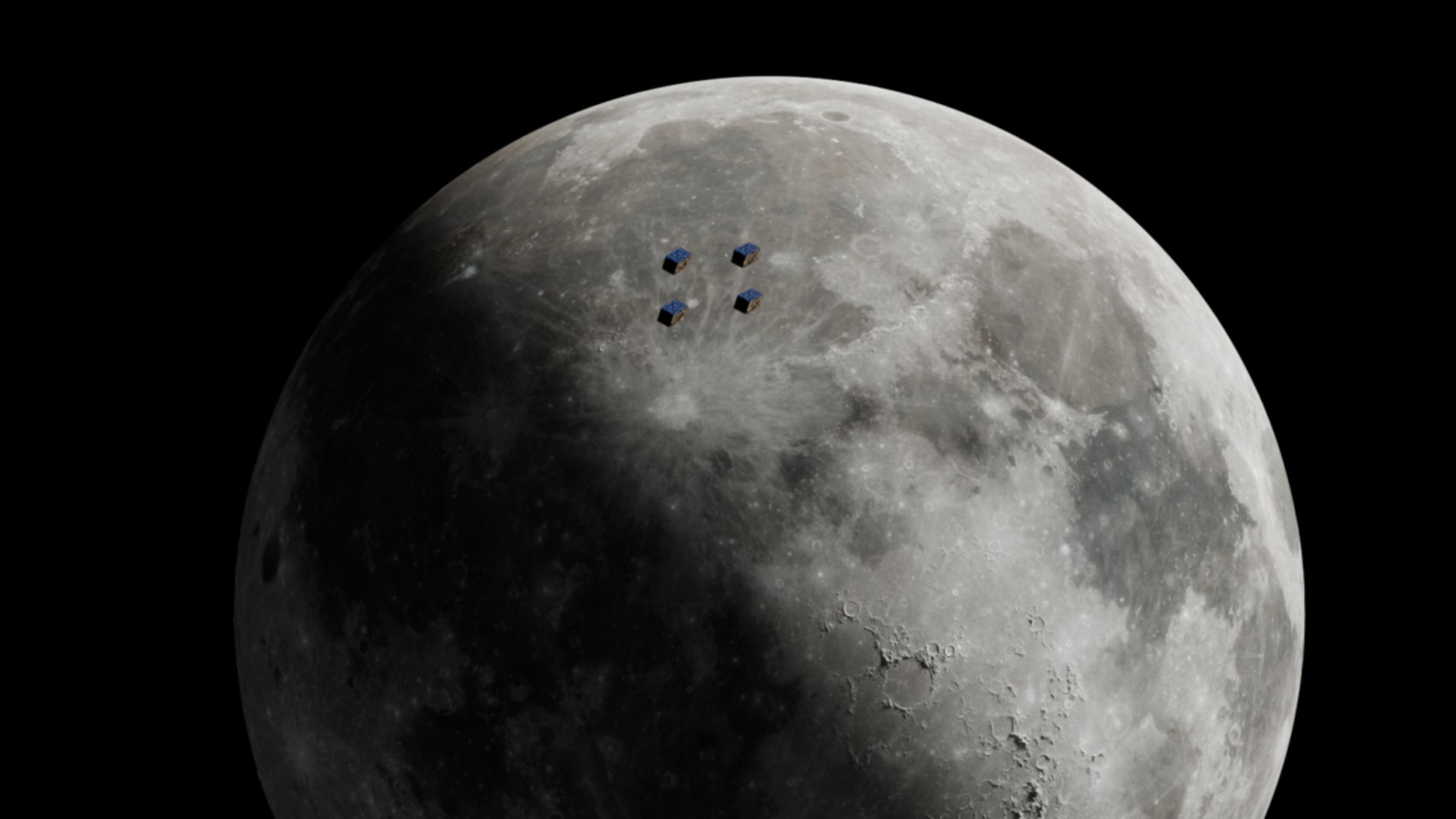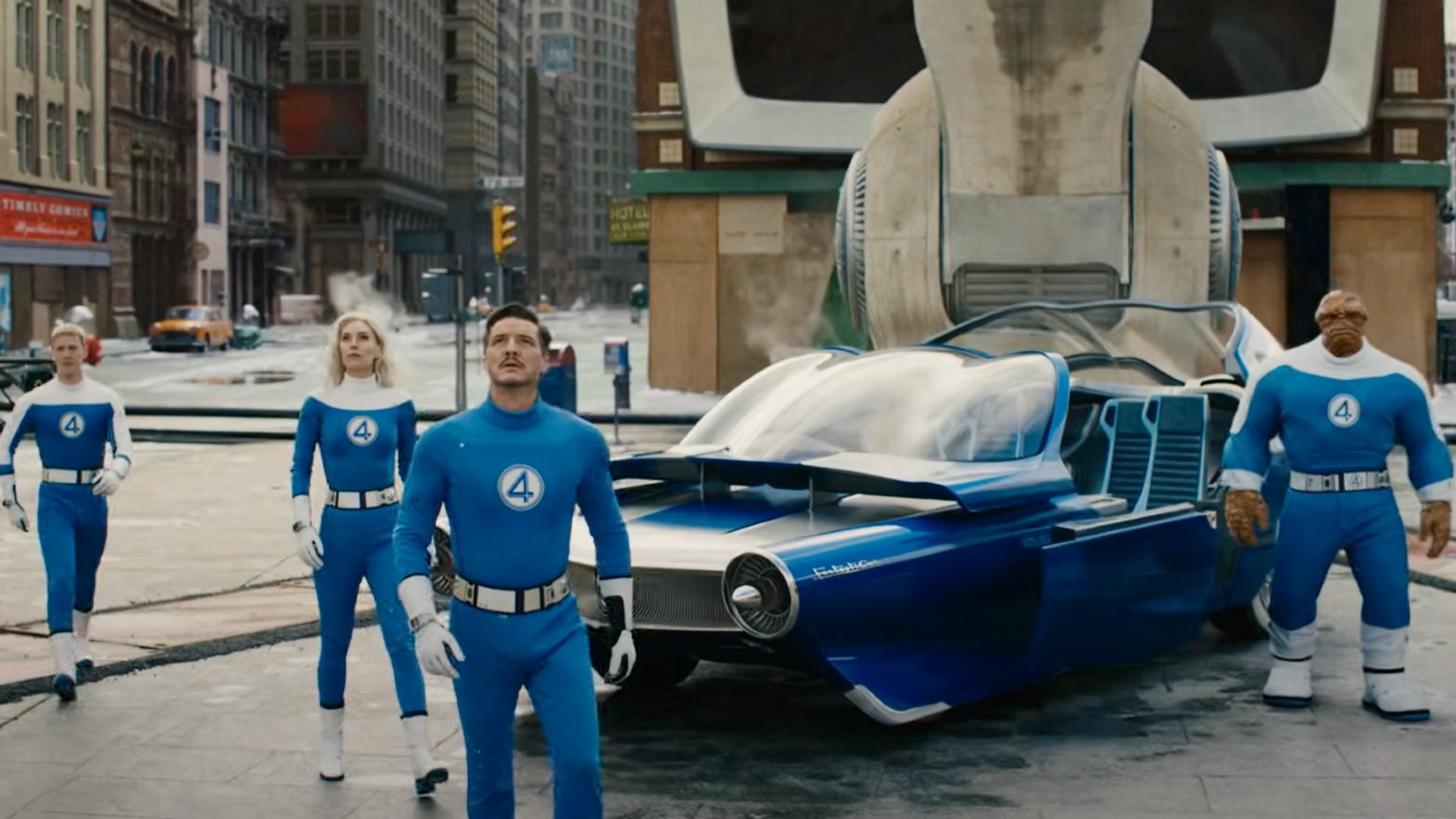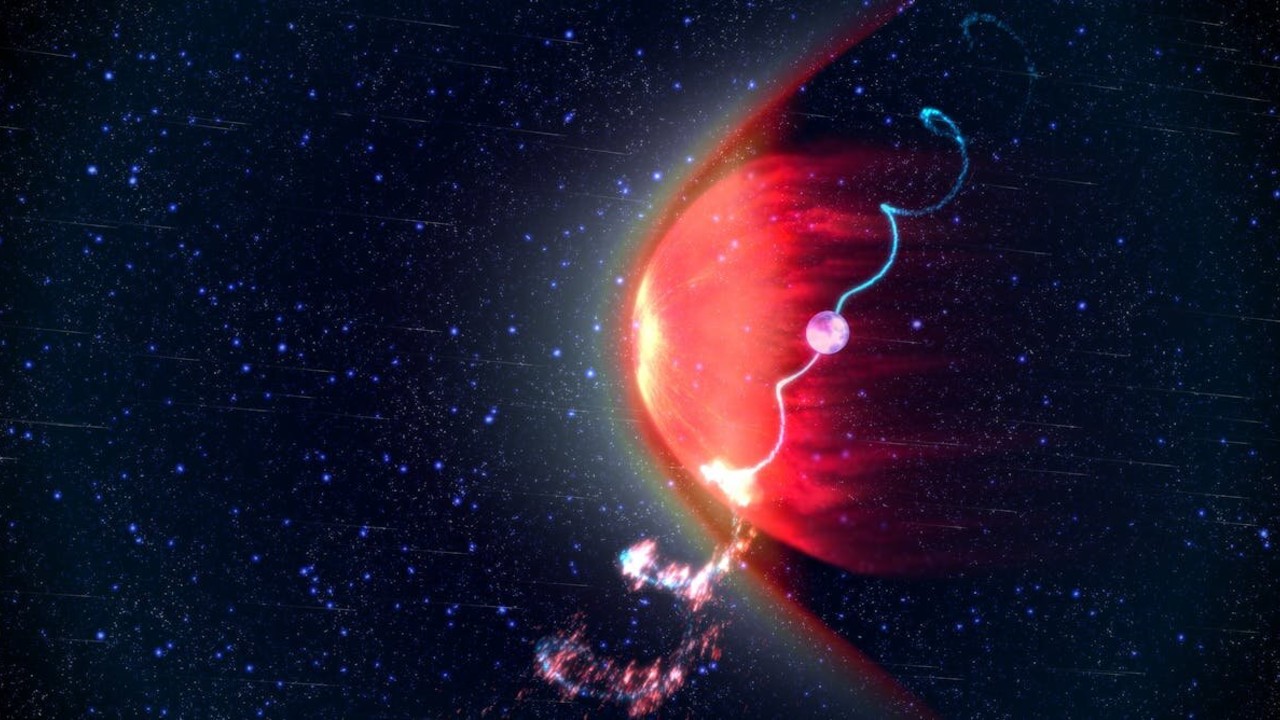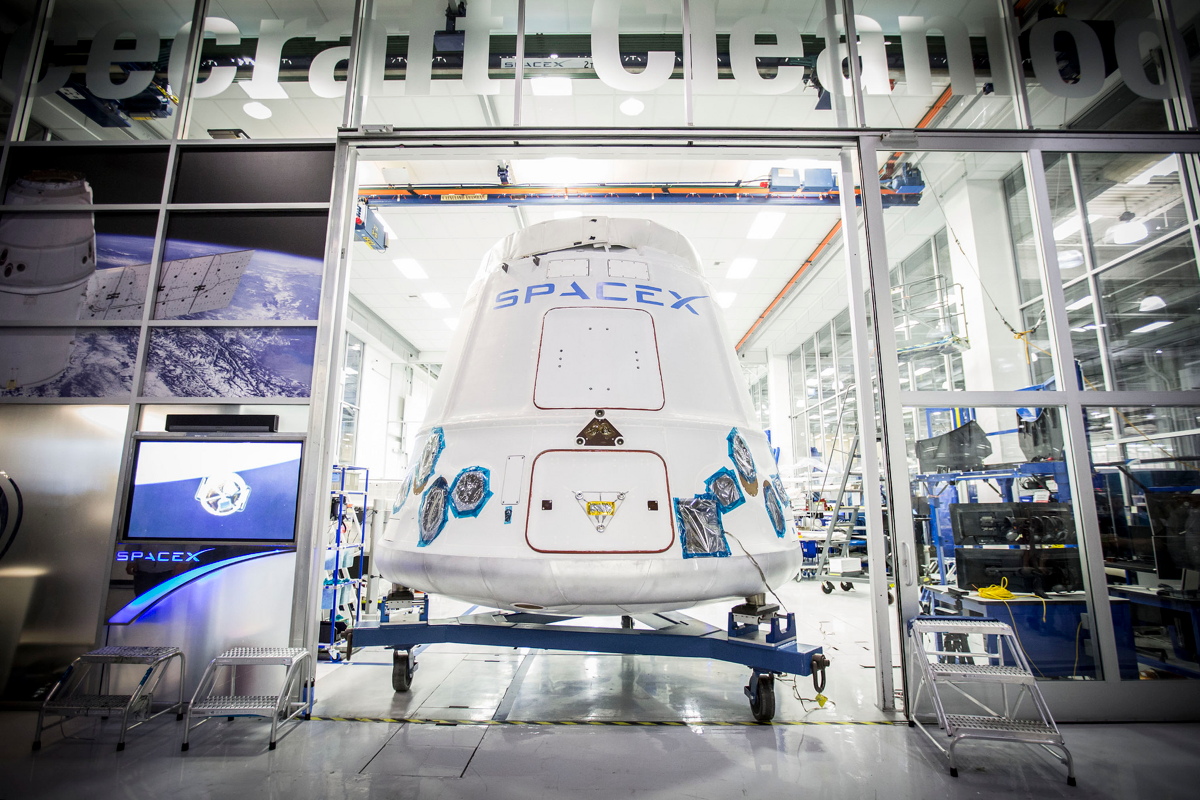
SpaceX has offered up a tantalizing glimpse of its first rocket-landing site on dry land, as well as several looks at the company's next Dragon cargo spacecraft.
The private spaceflight company posted a photo of a sign at Florida's Cape Canaveral Air Force Station that reads "Landing Complex 1." SpaceX is converting the site, formerly known as Launch Complex 13, into a landing pad for the reusable Falcon 9 and Falcon Heavy rocket stages the company is developing.
The Dragon photos show the robotic cargo vessel about to leave SpaceX headquarters in Hawthorne, California, on Feb. 23. The next Dragon mission to the International Space Station — the sixth that SpaceX will fly under a $1.6 billion deal with NASA — is scheduled to blast off atop a Falcon 9 on April 10 from Cape Canaveral.
SpaceX posted the photos on the company's Flickr site. All the images on that page recently became freely accessible to everyone; on March 21, SpaceX founder and CEO Elon Musk announced via Twitter that the firm's photos are no longer copyright protected, but instead exist in the public domain.
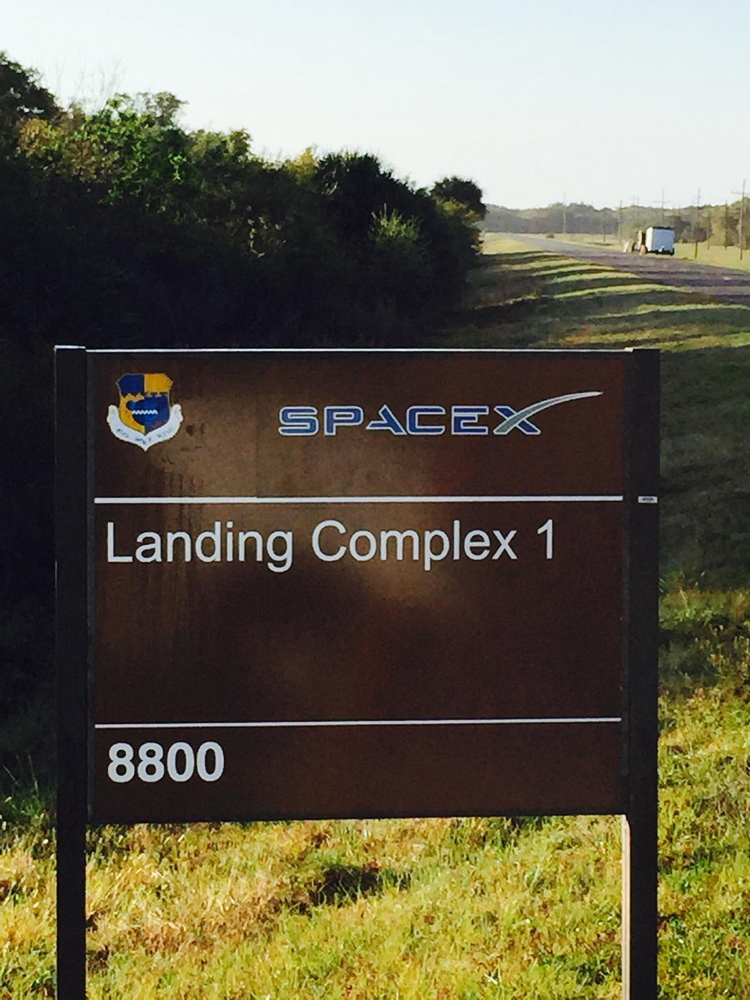
Developing fully and rapidly reusable rockets is a key priority for SpaceX. Musk has said that such technology could cut the cost of spaceflight by a factor of 100, perhaps even making Mars colonization economically feasible.
While SpaceX isn't ready to use Landing Complex 1 yet, the company has made a good deal of progress in its quest for reusable boosters. For example, SpaceX tried to land a Falcon 9 first stage on an "autonomous spaceport drone ship" in the Atlantic Ocean during the launch of the previous Dragon cargo mission, which occurred in January. The rocket stage succeeded in hitting its target but landed too hard, exploding on the robotic boat's deck.
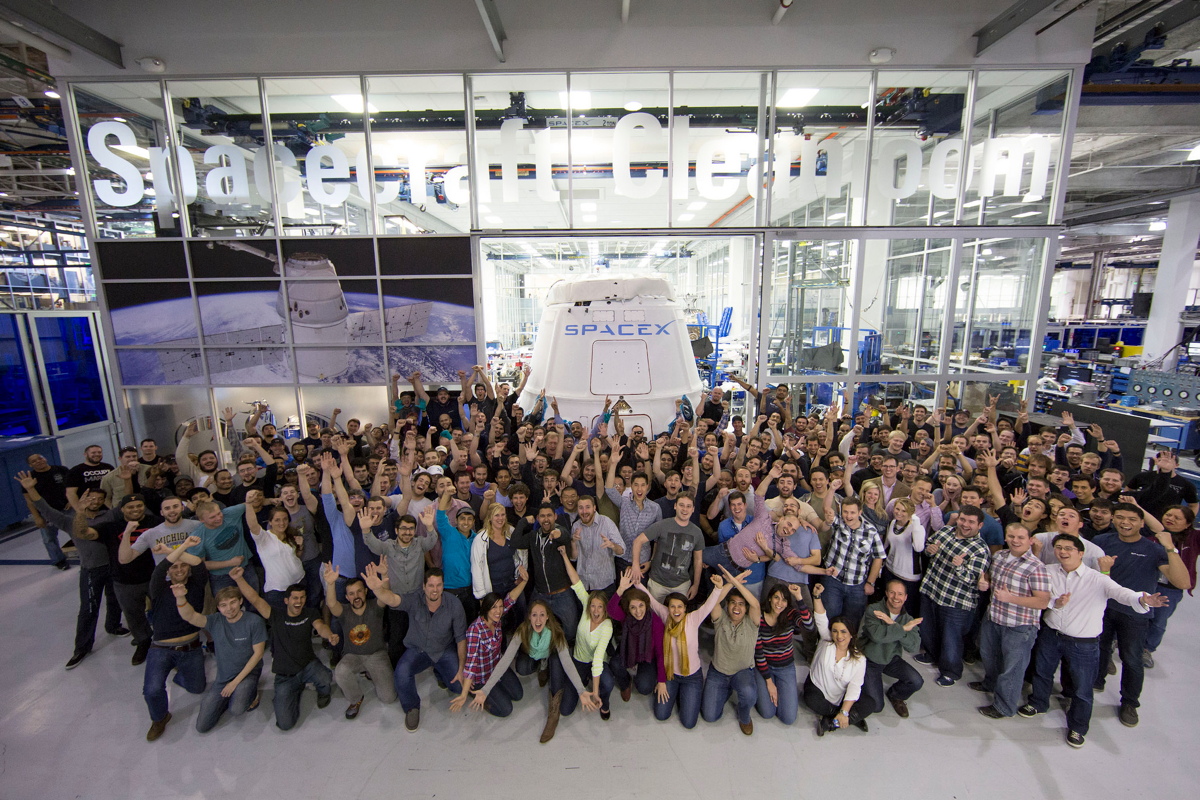
SpaceX will attempt the drone-ship landing again during the April 10 launch, Musk said.
Get the Space.com Newsletter
Breaking space news, the latest updates on rocket launches, skywatching events and more!
Follow Mike Wall on Twitter @michaeldwall and Google+. Follow us @Spacedotcom, Facebook or Google+. Originally published on Space.com.
Join our Space Forums to keep talking space on the latest missions, night sky and more! And if you have a news tip, correction or comment, let us know at: community@space.com.

Michael Wall is a Senior Space Writer with Space.com and joined the team in 2010. He primarily covers exoplanets, spaceflight and military space, but has been known to dabble in the space art beat. His book about the search for alien life, "Out There," was published on Nov. 13, 2018. Before becoming a science writer, Michael worked as a herpetologist and wildlife biologist. He has a Ph.D. in evolutionary biology from the University of Sydney, Australia, a bachelor's degree from the University of Arizona, and a graduate certificate in science writing from the University of California, Santa Cruz. To find out what his latest project is, you can follow Michael on Twitter.
